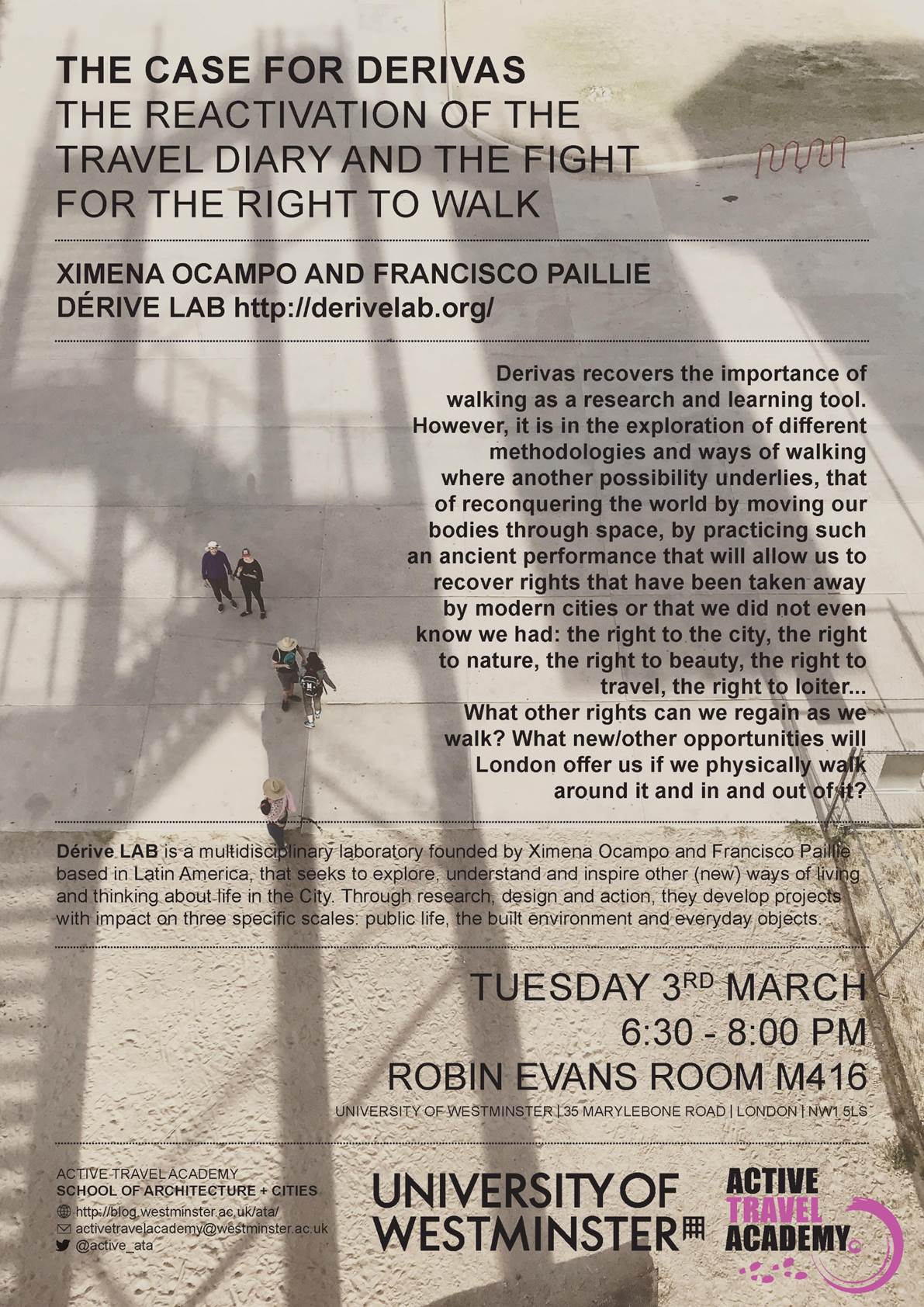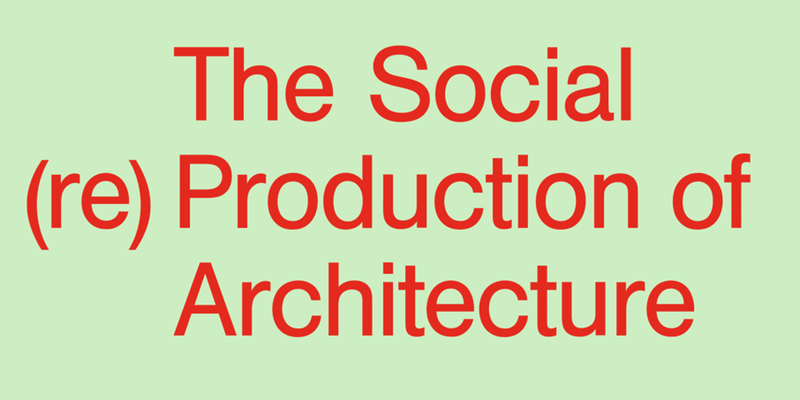When: Tuesday, 3rd of March, 18:30-20:00
Where: M416 (Robin Evans Room), Marylebone Campus, University of Westminster, NW1 5LS
Derivas recovers the importance of walking as a research and learning tool. However, it is in the exploration of different methodologies and ways of walking where another possibility underlies, that of reconquering the world by moving our bodies through space, by practicing such an ancient performance that will allow us to recover rights that have been taken away by modern cities or that we did not even know we had: the right to the city, the right to nature, the right to beauty, the right to travel, the right to loiter…
What other rights can we regain as we walk? What new/other opportunities will London offer us if we physically walk around it and in and out of it?
Ximena and Francisco will then be leading ten days of walks/explorations across London: you are welcome to be involved.
Nibbles & drinks from 18:00
Biography
Dérive LAB is a multidisciplinary laboratory founded by Ximena Ocampo and Francisco Paillie based in Latin America, that seeks to explore, understand and inspire other (new) ways of living and thinking about life in the City. Through research, design and action, they develop projects with impact on three specific scales: public life, the built environment and everyday objects.
Ximena Ocampo is an architect graduated from Tec de Monterrey, she holds an MSc in City Design and Social Science from the London School of Economics and Political Science (LSE). She worked as an urban designer at WRI Mexico, and later founded dérive LAB, where she currently leads different projects with a focus on public space, active mobility and, in general, the relationship between people and space.
Francisco Paillie is a psychologist graduated from Pontificia Universidad Javeriana, he later studied an MSc in Social and Cultural Psychology at the London School of Economics and Political Science (LSE). He was Leader of Social Participation of the Territorialization Strategy of the City Prosperity Index (CPI), implemented by UN Habitat in Querétaro (MEX). In 2013 he founded dérive LAB, where he works to date as project manager focusing on public space, active mobility and, in general, the relationship between space and psychology.
To register for this event please go here.











